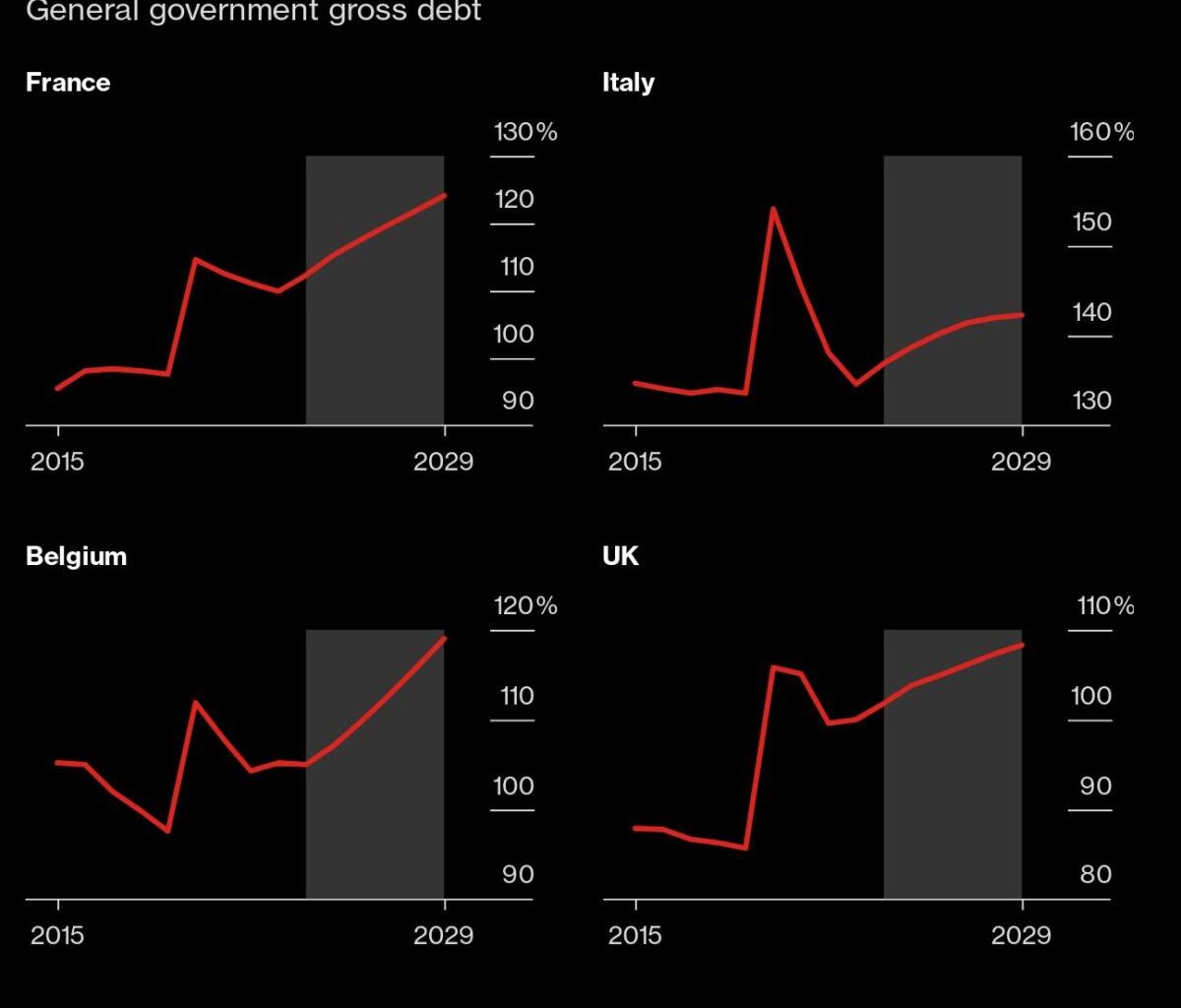(Bloomberg) — France and Italy will fail to bring their budget deficits down to the European Union’s 3%-of-output ceiling even by 2029, according to projections from the International Monetary Fund.
Most Read from Bloomberg
Gross debt in both countries will keep rising every year on that horizon as a result, Washington-based officials predicted in the annex to their Fiscal Monitor released on Wednesday.
That view is much more pessimistic than predictions from the governments of French Prime Minister Michel Barnier and Italian premier Giorgia Meloni. With each country now in a special monitoring regime imposed by Brussels, the projections effectively show persistent non-compliance with the EU’s newly revamped fiscal rules.
France, the euro zone’s second-biggest economy, has pledged to get its deficit down to 2.8% of gross domestic product limit by 2029. The IMF anticipates that the budget shortfall will stay close to 6% until 2029, which is the last year of its projection published this week.
That suggests nagging doubts from the officials that the country can successfully get back on track to repair its public finances, given a backdrop of political fragmentation and financial-market stress.
France needs more of a “frontloaded” fiscal adjustment, IMF official Vitor Gaspar told reporters at a briefing in Washington.
“We do believe that the government in France has presented ideas, proposals, that move in the right direction, but we are waiting for more clarity coming from actual enacted measures,” he said.
Italy has vowed to get under the 3% level by 2026, and was rewarded for that ambition last week with a positive outlook on its credit assessment from Fitch Ratings. However the IMF predicts a deficit of 3.5% that year, with the narrowing further over its outlook but never falling below it.
As a consequence, debt in each of those countries will keep rising. Italy’s borrowings as a percentage of GDP will reach 142.3% in 2029, the fund predicts — an increase of almost eight percentage points.
France’s debt meanwhile is forecast to rise more drastically, but from a lower base, topping 124.1% of output on that horizon.
Debt in both the UK and Belgium also stands out as persistently rising on the IMF’s forecasts for European countries. Britain isn’t a member of the EU, so isn’t subject to its monitoring.
Story Continues
